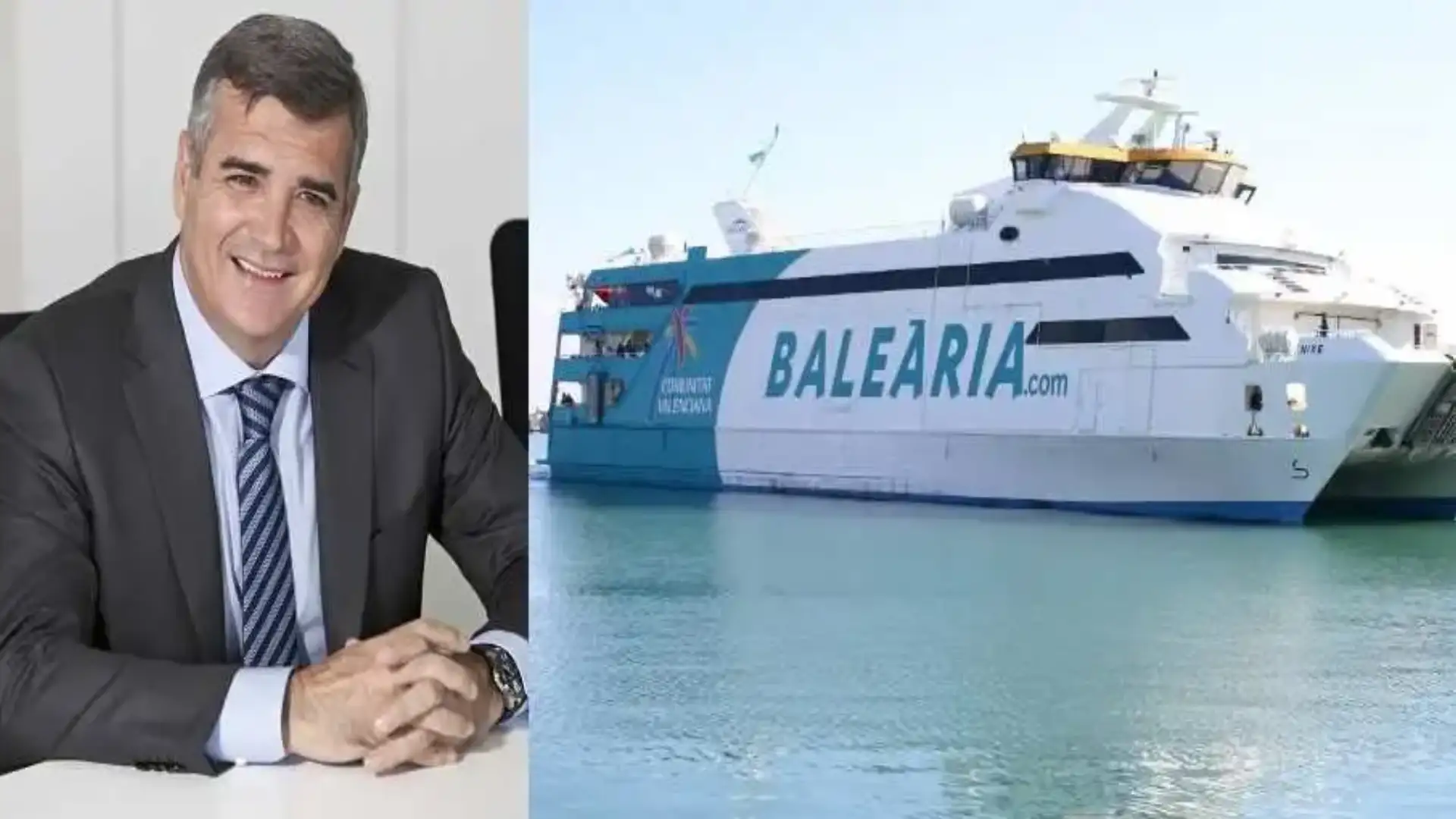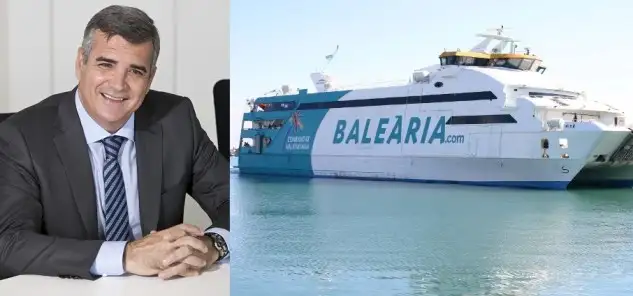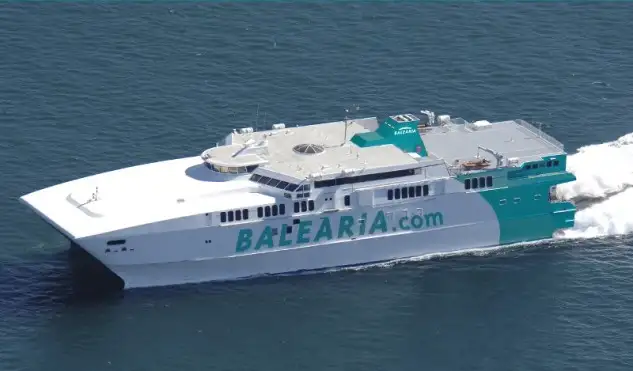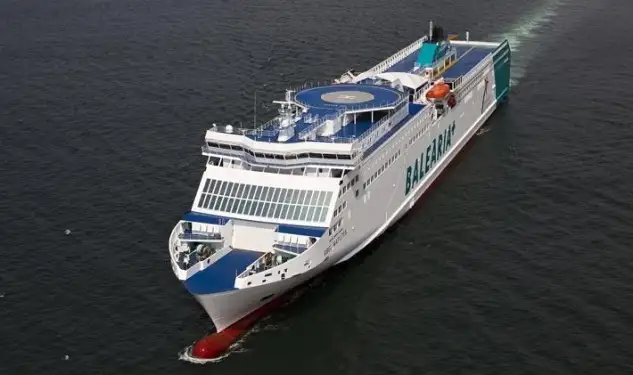
President of Balearia calls for greater attention for maritime transport
President of Balearia calls for greater attention for maritime transport
For the President of Baleària, Adolf Utor, "Governments should pay greater attention to the maritime transport sector and the strategic importance of having large local operators." We played in ND the interesting interview published on the website of the Spanish Maritime Cluster.
- How would your company present other members of the cluster, in case you didn't know her?
Baleària is a shipping company that is dedicated to the transport of passengers and rolling loads in the connections with Baleares; one of the largest operators of the same mode in the Strait of Gibraltar, and also offers services in the Caribbean. In 2014, we transported more than 3.5 million passengers and more than 4.5 million linear metres of rolling cargo, with a billing of about 300 million euros. Among the company's main bets is the internationalization of the business as a basis for consolidating the business project and the innovation applied to improving management, energy and fleet efficiency. The shipping company, which has a fleet of 23 ships, employs more than 1,200 people.
- Who are your main partners and customers?
The company's social capital is controlled by its President and founder who speaks to them through Consignations and Amaras and Naviera Management, 20.75% by Fiesta Hoteles and 5.42% by supplies Ibiza, whose main partners are the family Matutes and Juan Lladó. With regard to customers, the company has two business lines: the passage, where private customers and travel agencies would be, and the transport of goods, with logistics and distribution companies mainly. Virtually all major distribution companies are Baleària customers.
- What do you think distinguishes them from their competitors and where is the basis for their success?
We are a young, very dynamic and constantly changing and growing company, which is committed to innovation as a determining factor, in addition to constant investment in new ships, training and continuous improvement of our equipment. We have a competitive business model in which people play a central role: as part of the teams, and as recipients of our services. We bet on excellence in service and closeness with customers. In terms of service, we are punctual, and we offer quality services at the best price.
- How do you value the current situation in the Spanish maritime sector?
Spain is the fourth EU country by port traffic and the third by national maritime traffic after Great Britain and Italy. Maritime trade is vital for the Spanish economy and this year is already growing, in line with the positive development of our economy. In comparison, in terms of the merchant fleet controlled by the national shipowners, Spain occupies only the thirteenth place in the EU, a position clearly inappropriate to Spain's economic and maritime weight in Europe. The growth potential of the Spanish shipping sector is therefore very high.
- What actions do you consider to be essential to harness the potential of the Spanish maritime sector?
I particularly believe that governments should pay greater attention to the maritime transport sector and to the strategic importance of having large local operators to drive the sector and to contribute to the necessary economic recovery in Spain. To this end, it is essential to achieve a more competitive Special Register, with regard to the recruitment of 50 per cent of foreign seafarers, by simplifying procedures and without limitations, or the possibility of approving recognized companies in the processing of flag certificates, as is the case in most countries with major fleets.
These two measures would equate the Spanish register to the rest of the European records and facilitate the growth of our fleet. In order to achieve this objective, we must be aware of the strategic importance for a country of having strong operators, and that, today, is difficult for our leaders to assume. However, European political leaders and their homonyms in major countries (such as France, Germany, Italy or Britain) are aware and act accordingly. We are confident that one day our people will realize the importance of the sector and lead to a change of course. This would have a positive impact on employment and the Spanish economy. It will always be better, in terms of fleet, to have 50% of a large merchant fleet, than 100% of a small fleet.
- What challenges do you think the sector faces in the coming years? How should I respond to them?
At the international level where globalization increasingly requires the mobility of goods, services and people, demand for maritime services will continue to increase above economic growth. At the same time, the market is increasingly demanding more quality in services and more competitive prices. The major challenge for the sector is competitiveness, which is inescapable of innovation and energy efficiency. New ships, port services, energy efficiency, increasing demand, force continuous ship renovations that will drive the shipbuilding sector. It is therefore so important to have strong national operators.
- What are the advantages of being a partner of the Spanish Maritime Cluster?
I am a strong advocate of partnership and collaboration. The Maritime Cluster is a very cross-cutting organization whose common denominator is the sea. Their plurality is an advantage and a disadvantage at times. Its leadership is important and the fact that it is chaired by a national shipping company can be a determinant of its efficiency.
To be in contact with all the actors involved in the maritime sector and to be able to contribute to a broad collaboration is and must be a welcome engine of development and growth for our country. I hope that the public authorities will understand this and agree on our objectives.
- How would you like to see the Spanish Maritime Cluster and expect it in the medium term?
The cluster covers a wide range of entities that are difficult to coordinate, companies, consultants, associations, trade unions, with sometimes conflicting interests and with a common denominator, the sea. For Spain, because of its history and geography, the sea represents almost everything. If we are able to solfa this huge orchestra, our voice can be heard with strength and will be heard. It is not an easy task, it must be more than just a meeting place where we meet with politicians of lustre, we must achieve objectives, pursue and concrete them. Complicated, but possible. Good luck to Alexander and his team.
© 2024 Nautica Digital Europe - www.nauticadigital.eu














